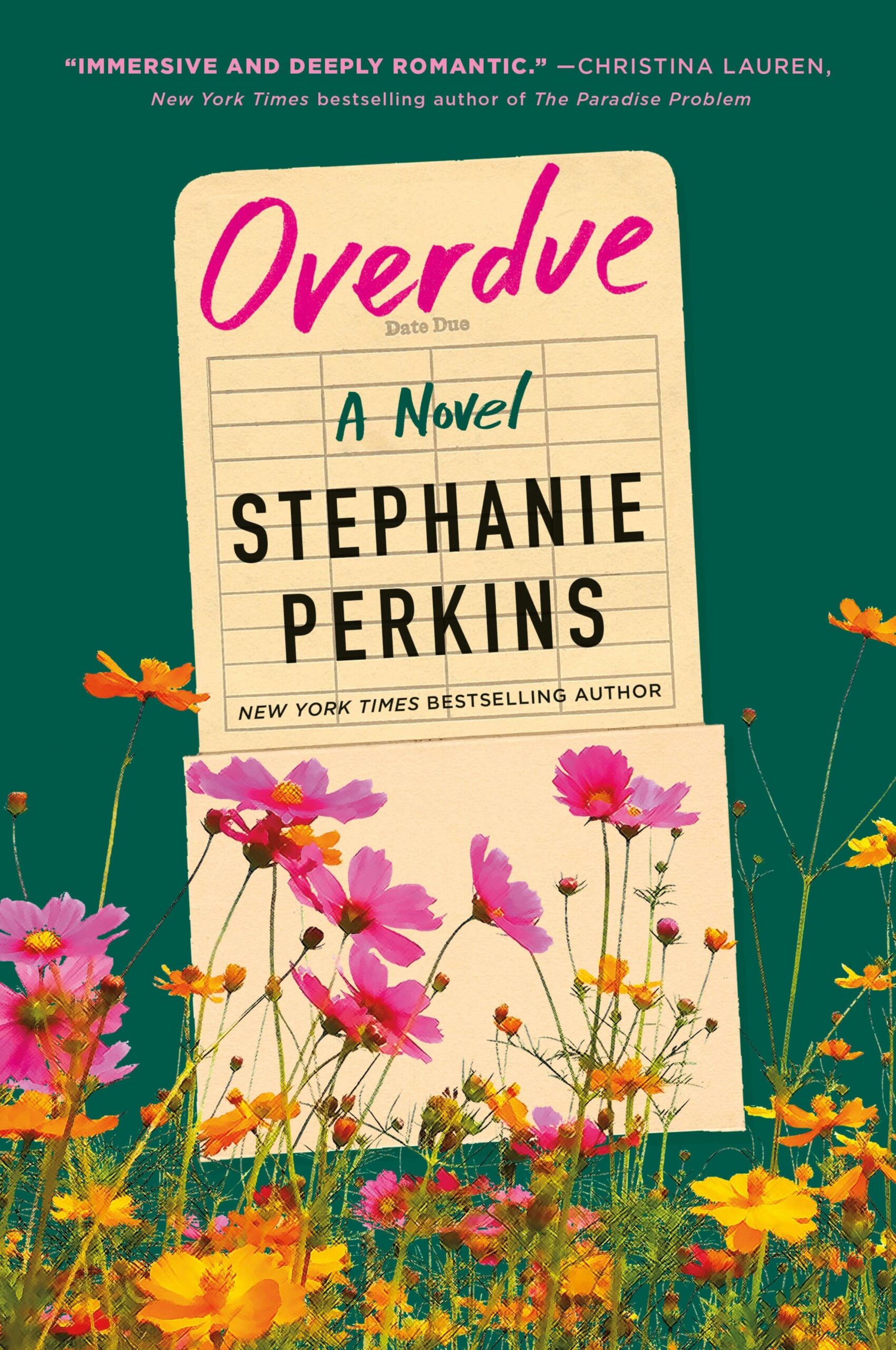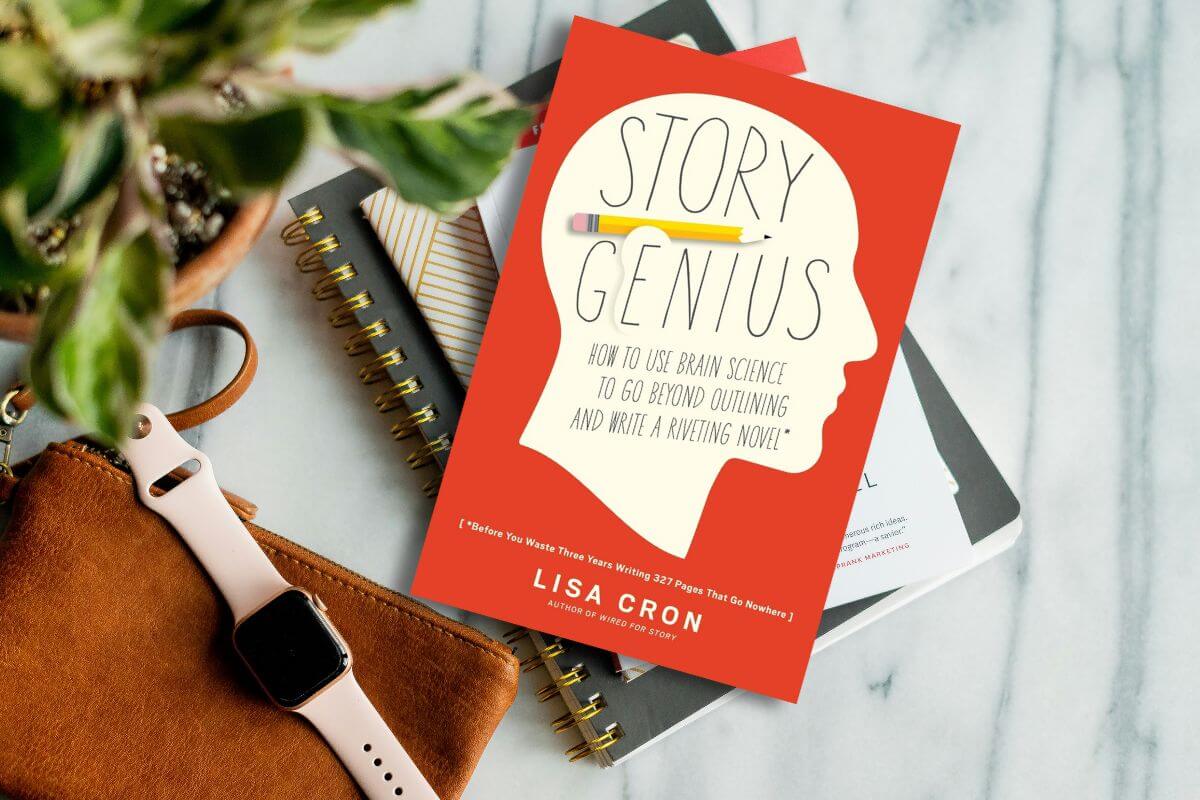Stephanie Perkins is the New York Times, USA Today, and international bestselling author and anthology editor of multiple books, including Anna and the French Kiss, Lola and the Boy Next Door, Isla and the Happily Ever After, and My True Love Gave to Me, as well as There’s Someone Inside Your House, which was adapted into a major motion picture for Netflix. She has always worked with books—first as a bookseller, then as a librarian, and now as a novelist. She lives in the mountains of North Carolina with her husband. Every room of their house is painted a different color of the rainbow.
There’s an important aspect of the job that is too often pushed aside when discussing writing: how to support yourself—your actual self, your mind and body—as a writer.
Our culture is permeated with examples of people breaking themselves to create art. We’re so conditioned to believe that suffering is inherent to the craft that it’s easy for our imaginations to conjure up that classic image of a tortured writer: awake late into the night, overindulging with stimulants or alcohol, fighting the madness and then leaning into it.
While I’m not sure that I ever fully believed this mythos, I didn’t disbelieve it, either. This marks my fifteenth year of being a published author, and for at least half of that time, I worked late into the night, overindulged with stimulants, fought the madness and then leaned into it. I didn’t think there was any other way that I could get the job done.
Anybody on the outside could have predicted how this would end. Eventually, the physical and mental toll on my body forced me to stop, and I had to reevaluate if I even wanted to keep doing the job at all. I did, which meant I needed to find a new and sustainable way of working.
My thoughts here are far from revolutionary. In fact, they’re the most basic advice that any doctor or therapist or healthcare website would give you. The problem, however, isn’t that these recommendations are obvious.
The problem is that actually doing them is hard.
Rethink Your Relationship to Your Phone
I struggle with focus and concentration, and statistically speaking, thanks to the algorithms in our phones, most of you probably do now, too. Unfortunately, writing is impossible if you can’t concentrate.
I’m more productive on days that I don’t check social media or the news until after I’m done writing. This is difficult. Outrageously difficult. But it’s important to keep those outside voices and distractions out of our heads. An entire morning, or even day, can be lost down these rabbit holes. Save the scrolling for when your work is done.
I’m also more productive when I don’t sleep beside my phone—when I don’t check it last thing before falling asleep or first thing in the morning. Circadian rhythms are real, and it’s wise to respect them. Sunlight before screen light, okay? When you get out of bed, open your curtains or step outside for a couple minutes. Natural light helps our minds wake up.
I also keep my phone out of view while I work. I tuck it behind my laptop and only check it when I leave my desk to eat or use the bathroom. It also stays on silent, so only my emergency contacts can reach me.
Healthy Fuel
This will sound irritating, but my work—and, again, my ability to concentrate—improves when I’m eating healthier. The pitfall here is that the busier I get, the more I’m tempted by junk and fast food. Eating healthy is also time consuming. I keep a weekday writing schedule, so often I’ll prep meals and snacks over the weekend. I’m sorry to report that it’s always worth it.
Also, I recommend drinking water. Avoiding alcohol. And consider cutting back on caffeine, too, especially sugary caffeine. (Again, I’m sorry.) All of these beverages make a difference in our ability to think clearly, which is what we need to be able to do as writers.
Reengage With Reading
In this distracted age, even book people are reading dramatically fewer titles than they used to. If you want to be able to write new and original sentences, you’ve got to start reading voraciously again. For the best results, read widely—from many genres and authors and experiences as possible. And if you’re physically able to, add in physical books rather than just audiobooks and e-readers. Audiobooks are fantastic and useful, but our brains process them differently. Studies have also shown that our reading comprehension improves when we read on paper versus digitally. Challenge and strengthen your mind by retraining it to read physical copies of books. Set timers, if necessary. No shame.
Exercise, Ugh
I am not one of those people who experiences endorphin highs after exercising. I loathe moving my body and always have. But I force myself to take a walk every day because, when I do, my ability to concentrate improves. And if I need an additional boost—on days when my writing is stuck—I’ll walk without listening to a podcast. It’s embarrassing how agitating this is for the first few minutes. However, movement stirs creativity. It helps our minds make connections that we didn’t see before, and we need quiet to hear those thoughts and ideas.
Cultivate Silence
Our bodies love silence, but we hardly get it anymore. Practice sitting with it again. I used to work with loud, rhythmic, pulsing music—something I thought was to keep my energy up. It took years for me to realize this was actually a coping technique for my ADHD; I was trying to drown out the noise of the real world by creating my own white noise. Now that I’m aware of this, I’ve pivoted to silence. I started with the assistance of noise-canceling headphones, graduated to simple earplugs, and now I’m usually good without anything.
However, because of the world, some days I’m still too distractable or anxious for silence. That’s when I slap the headphones back on and listen to binaural beats until my ability to focus returns.
I’ve also been meditating on and off since I was a teenager, but it’s obvious that I write better when I’m in the habit. It’s like eating well or exercising. You’ll get results immediately, but you’ll see a much more substantial improvement the longer you practice. It’s okay if this is uncomfortable. Start with ten minutes a day, and set a timer. I’ve built it into my routine by doing it at the beginning of each writing session.
Avoid Overworking Yourself
Take writing seriously, like any other job. Because it is a job, even if you aren’t getting paid for it yet. Put in enough hours, and put them in regularly . . . but also be aware of the cost of overworking yourself. For whatever reason, a lot of writers have about a four-hour limit for deeply focused work. After that, our minds need to rest, otherwise our work begins to suffer. You can find your own limit by taking notes. Write down how your body feels after three hours, four, five. After observing yourself for a few weeks, you’ll recognize the warning signs. Respect your limit, or you’ll only make the next workday harder. (Which makes the next day harder, and then the next.) Avoid the build.
Get Enough Sleep
Finally, go to bed early. Sometimes when I’m drafting—the most difficult part of writing for me—I put myself in bed a full two hours earlier than I normally would. I don’t enjoy this. It almost always means sacrificing something fun, like a movie. But it recharges my mind better than anything and prepares it for another day.
 Overdue by Stephanie Perkins
Overdue by Stephanie Perkins
For Ingrid Dahl, her steady life as a librarian with her boyfriend of eleven years hasn’t had any reason to change, at least not until her sister got engaged to someone she’s only been dating for two years. Shaken, Ingrid and her boyfriend Cory decide to shake things up and put their relationship to the ultimate test: a one-month break where they can date other people and afterwards finally decide if marriage is for them. When Ingrid takes this chance to get closer to her delightfully grumpy coworker Macon, things don’t go as smoothly as she and Cory had hoped. After their month apart, what is there left to come back to?
Buy the book now: Bookshop.org | Amazon | Barnes & Noble














Leave A Comment